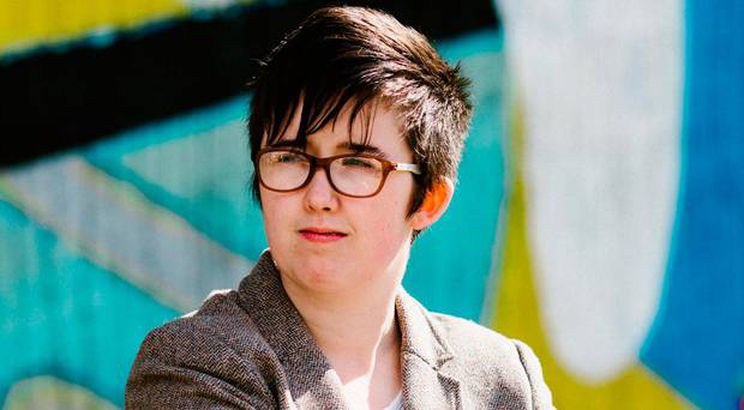The Cold Case Detectives by Lyra McKee Lyra McKee is a freelance journalist and writer Every story has a beginning, a middle, and an end. So does this one. It can be summarised as a bullet, a bullet, and a bullet.

This was Lyra McKee’s foreword to a collection of essays called ‘Paper Trailers’ – a series of personal reflections collated and published by Ciaran MacAirt, a writer, researcher and victims’ campaigner in Belfast.
From the very minute I met Lyra when she was just 16 I could tell she was a born storyteller. What motivated her was to uncover the real, often concealed, truth behind the stories of many of the victims of the Troubles, and to restore meaning and agency to their lives.
My late husband, Liam Clarke, former Political Editor of the Belfast Telegraph, and I had first got to know her when she wanted to discuss stories that either or both of us had worked on.
Within a couple of years, by 2006 in fact, Sky News had named her their Young Reporter of the Year. And by 2016, Lyra had been named one of Forbes Magazine’s elite ‘Thirty to watch under Thirty’ list.
Last year she secured a two-book publishing deal with Faber & Faber, the first of which, The Lost Boys, about the unknown victims of the Troubles, is to be published in 2020.
We all knew that one day she would make international headlines.
But never could any of us have imagined that those headlines would tell how she was cut down in the line of duty to become the latest victim of the Troubles.
Last Thursday night, Lyra was murdered by Saoradh – the ‘New IRA’ – when one of their number fired a handgun up a side street where Lyra stood near a PSNI Land Rover with her partner, Sara, as she reported on rioting in Creggan. She was killed instantly.
The thing about Lyra was that you couldn’t walk down the street with her in Belfast without getting drawn into a number of conversations. She was a talker. That was one of the main things she loved about Derry, the warm and open people she had met there since moving up to live with her partner, Sara.
But she was a listener, too. I don’t think there was one homeless person on the streets in Belfast that she didn’t know by name and personal circumstance. I often bumped into her around the City Hall and on Great Victoria Street as she bent down talking about what was new with them before she gave them whatever she could afford.
There wasn’t an ounce of malice in her, but that doesn’t mean she was some sort of plaster saint. She had a quick and ready wit, and could more than hold her own in any company. She was prone to ferocious fits of the giggles, and letting off steam in what one friend called ‘her funny half-hours’.
Lyra often worried that she might have inadvertently hurt your feelings, and often timidly asked if you understood what she had meant, when she feared she might have given offence, when of course she had not.
She loved her mother, Joan, with a fierceness that was matched by the protectiveness she showed towards all her large family and many friends. And to Marie the cat. And above all to the love of her life, her partner Sara, who had changed so much for her and brought so much happiness into her life.
Our thoughts and love are with Sara and Lyra’s family today.
All who knew her loved the bones of her. She was a beautiful, intelligent, loving and generous young woman.
Just a month ago on her way to Derry, Lyra called into my house in Ballymena to discuss plans that we had and to catch up. The next day, she sent me the latest version of proofs of her book, Angels With Blue Faces, about the murder of Rev Robert Bradford, shortly to be published by Excalibur Press.
At the end of her foreword to the book, she wrote this final paragraph.
‘Finally, thank you, dear reader – thank you for buying this book. I hope the read is worth it. My share of the proceeds from sales is going to Paper Trail, a charity run by researcher Ciaran MacAirt which helps survivors of the conflict – regardless of religion, political belief or other affiliations – investigate the deaths of their loved ones during the Troubles, by providing training courses in research skills and/or doing the research on their behalf. It empowers victims by helping them ask questions and obtain answers about what was often the most traumatic experience of their lives. Your money will help Paper Trail continue to do this, as Northern Ireland continues to recover from the devastation left by 30 years of war.’
When I asked Ciaran MacAirt yesterday for permission to use that paragraph in this piece he drew my attention to her earlier foreword to his collection, quoted above.
Last night, he vowed: “The story of Lyra McKee does not end with a bullet. Her family and friends will see to that.”






